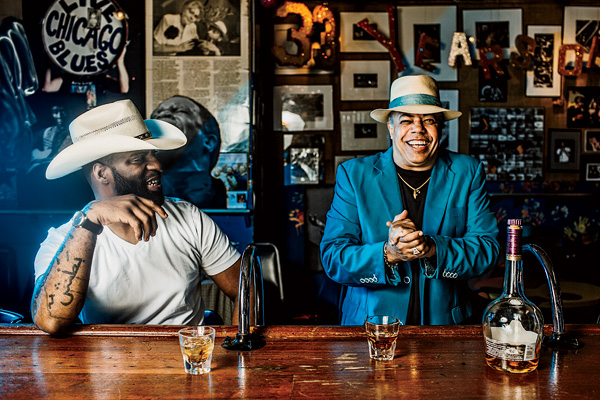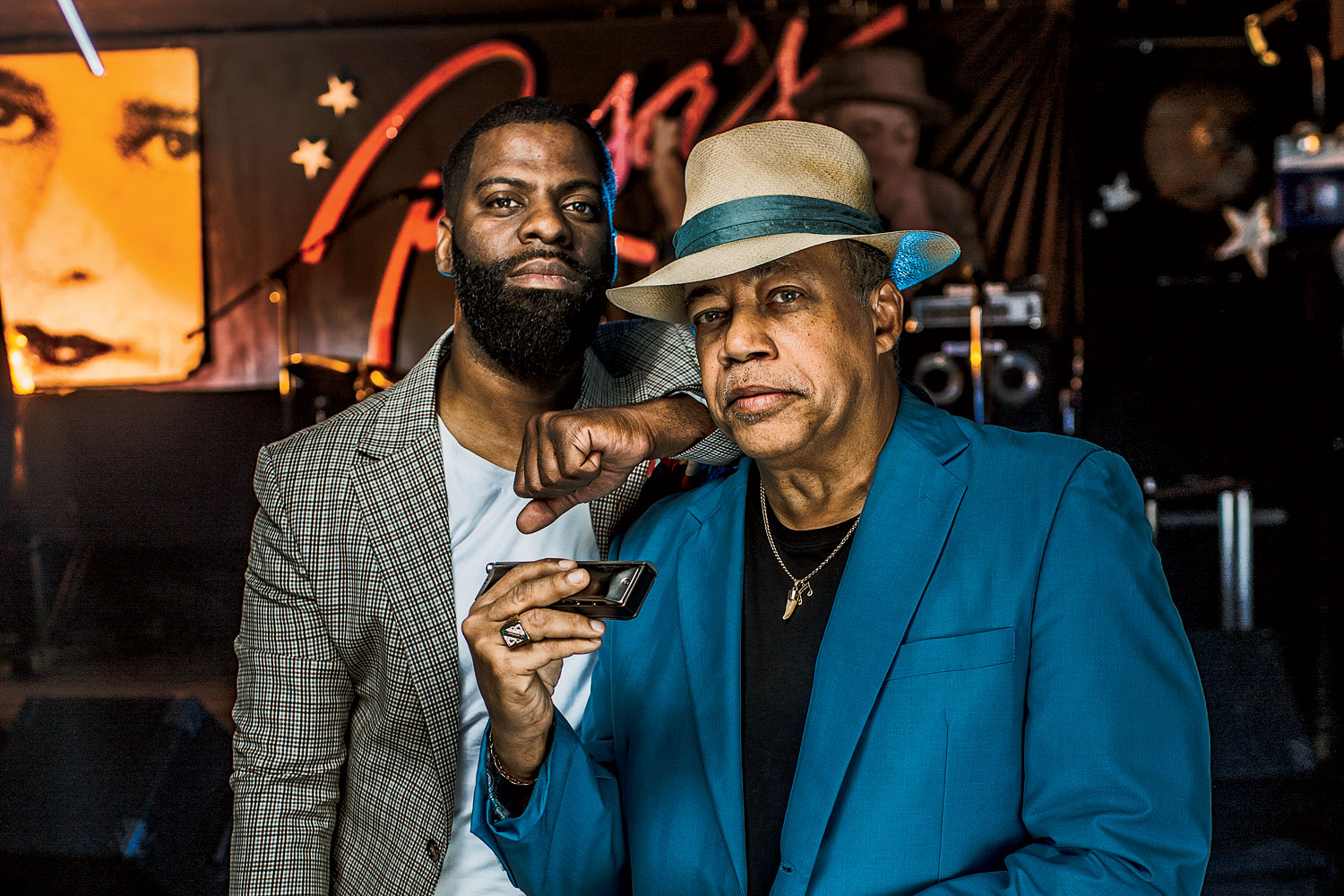Even after 40 years gigging on Chicago’s blues circuit, Billy Branch still embraces the new. The harmonica whiz—one of the few remaining greats from the golden age of Chicago blues—has spent his career working to keep the genre relevant, including leading workshops in Chicago’s public schools and touring the globe with his band, the Sons of Blues. His next act? Partnering with Grammy- and Oscar-winning Chicago rapper Che “Rhymefest” Smith on a suite of new music that blends blues and hip-hop.
In anticipation of their stage debut at the Chicago Blues Festival, the two sat down at Rosa’s Lounge, the Logan Square club where Branch took the stage 33 years ago on its opening night, to discuss the evolution of delta music.
Rhymefest and Billy Branch will perform at 6:20 p.m. on June 9 at the Jay Pritzker Pavilion at Chicago Blues Festival. Branch will perform his own set at 7:20 p.m. Both events are free.
Chicago: How did your collaboration come about?
Billy Branch:My band and I are celebrating our 40th anniversary at the Blues Fest. During the planning stage, it was brought up that there’s a need to attract a more diverse, younger audience to the festival. That’s where Che came in.
Chicago: People don’t generally think of hip-hop when they think of the blues.
Che Smith:But they should. You can’t come from Chicago and make any kind of music without honoring the blues. The people who have historically done blues in Chicago have come from the Bible Belt—Louisiana, Mississippi, Arkansas—where the spirit of the music was born. Hip-hop and blues are connected by those stories.
BB:Willie Dixon defined blues music as the facts of life. I’ve often made the comparison that hip-hop is the voice of the angry youth, but it’s also the facts of life. They’re telling it like it is, and that’s what the blues does.
CS:If you look at [the rapper] Common, one of his biggest songs is “I Used to Love H.E.R.” That sounds like the title of a blues song. Lupe Fiasco has a song “Kick, Push.” He’s talking about skateboarding, but that song is about kicking and pushing through the hard times in life. Two of the biggest songs I’ve worked on are “Jesus Walks” and “Glory.” Can’t nobody tell me that ain’t the blues.
BB:It all comes from the blues, but many black people won’t acknowledge the music as part of their roots. The music represents a space in history connected to the South and Jim Crow and segregation, and a lot of people don’t want to revisit that.
CS:I don’t think it’s an issue of black people not appreciating the blues, so much as the music not being passed down. My grandparents loved the blues, but they didn’t pass it down to me. We’re trying to make the blues part of the communal culture again.
Chicago: You two live within walking distance of each other in Chatham. What is it about Chicago that breeds “facts of life” music?
CS:For me, it’s because it’s hard to live here. There’s a low-level hum of everyday stress that nobody even realizes. This city builds character, period. The weather, the fines, the corruption, the crime, the traffic—if somebody lives on the West Side and you’ve gotta go through that 290 bottleneck to go see them.
BB:It still remains one of the most segregated cities in the United States. Dr. King said, when he came marching through Marquette Park, he’d never experienced the hate in the South that he experienced in Chicago.
CS:And that right there builds music.
BB:But in spite of that, there is a spirit of togetherness here. When the Cubs won, everybody celebrated. When the Sox won, everybody celebrated. When the Bulls used to win, everybody celebrated. For that brief moment, we were all one.
Chicago: What do you hope will come from this collaboration?
BB:Knowledge of our cultural ancestry. I’ve played with so many masters who never got the recognition: Willie Dixon, Junior Wells, Lonnie Brooks—guys who influenced the Rolling Stones and Led Zeppelin.
CS:It starts with small steps. When we perform at Blues Fest, there’s gonna be a cross-generational, cross-racial audience that would have probably never been there. You know, I didn’t even know Rosa’s existed until today. But now that I see how cool this club is, the first thing I’m gonna do is come back with my homies. Then it starts a thing.




